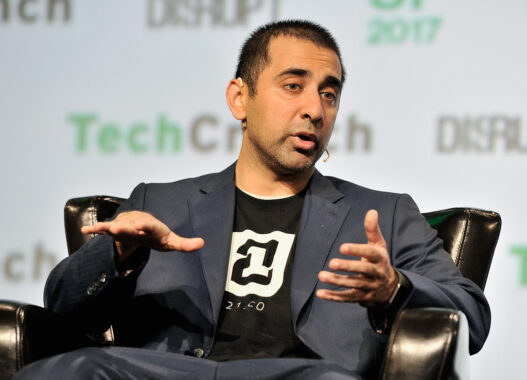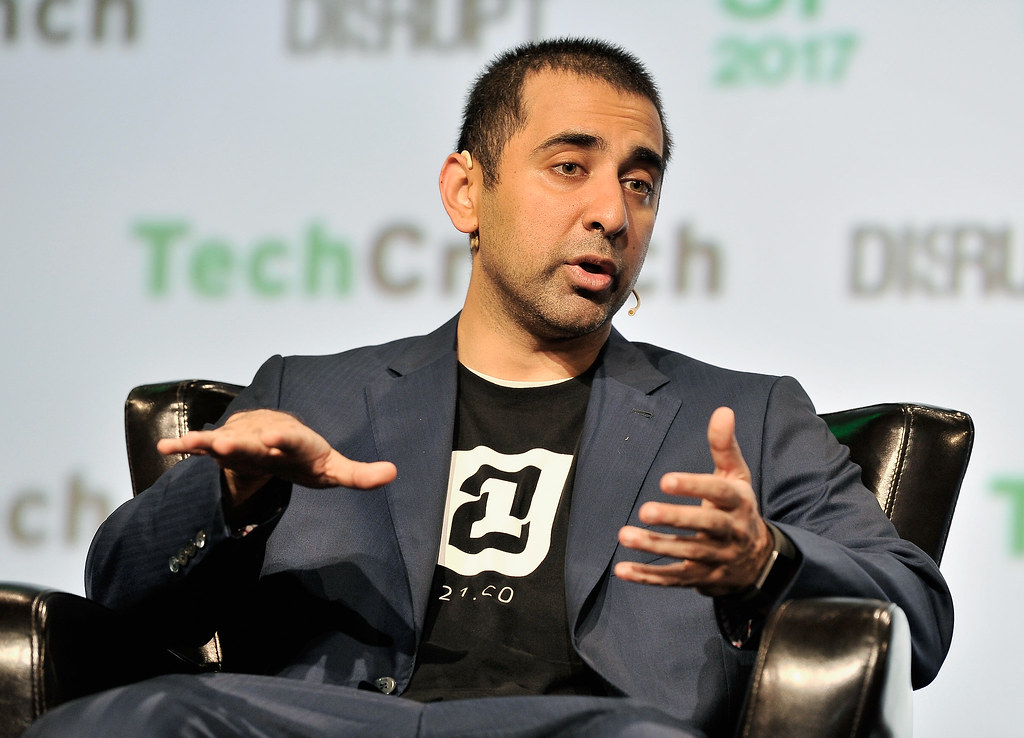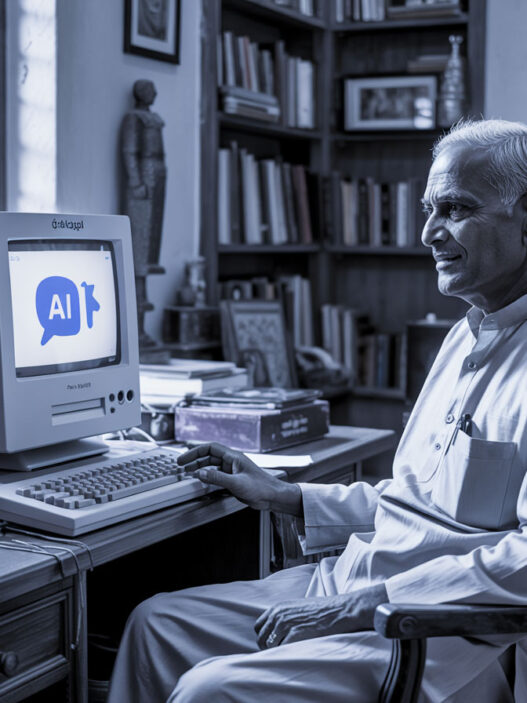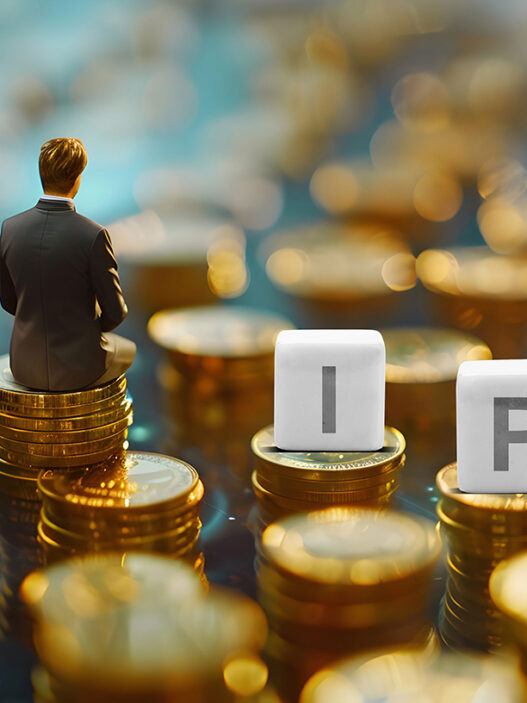Just off the coast of Singapore, on a quiet tropical island dotted with lush greenery and azure waters, something unprecedented is taking shape. It’s not another luxury resort, nor a crypto billionaire’s hideaway. Instead, it’s the early stages of what could become one of the most radical social experiments of the 21st century—a new kind of nation, founded not by conquest or colonialism, but by code, community, and capital.
At the center of it all is Balaji Srinivasan, the Indian-origin entrepreneur, investor, and technologist who’s now turning his long-theorized “Network State” into something tangible. After making waves as the CTO of Coinbase and a General Partner at Andreessen Horowitz, Srinivasan is attempting his boldest move yet: building a country for founders, innovators, and digital nomads—starting with an island.
From Vision to Reality:
In 2022, Balaji published The Network State, a provocative manifesto proposing a new model of nationhood—digital-first, ideologically aligned communities that start online, crowdfund territory, and eventually seek diplomatic recognition. Critics called it utopian. Admirers called it visionary.
Now, in 2025, the experiment has begun in earnest. The island—located near Singapore—has been acquired by Srinivasan and his team to serve as the first physical prototype of his Network State. Dubbed The Network School, this 3-month program gathers over 150 handpicked individuals—tech founders, engineers, AI researchers, crypto builders, and wellness enthusiasts—to live, learn, and build together under one roof.
Each day begins with fitness training, meditation, and biohacking sessions. Meals are nutritionist-curated. Classes focus on AI, crypto, decentralized governance, startup mechanics, and digital sovereignty. Nights are for peer reviews, project launches, and founder salons. “It’s like Y Combinator meets a monastery meets a sovereign prototype,” said one participant on social media.
What’s the Endgame?
Srinivasan isn’t just launching a retreat or an accelerator. He’s laying the foundational blocks of a sovereign digital-first society. According to insiders, the island is only the beginning. The larger roadmap includes:
- Creating a network of ‘cloud cities’ in Dubai, Tokyo, Miami, and other innovation hubs.
- Crowdfunding future land acquisitions by tokenized communities.
- Drafting a decentralized charter and digital constitution that governs behavior, values, and governance protocols.
- Eventually seeking recognition as a self-sovereign state through diplomatic channels or affiliations with existing micro-nations.
It’s a moonshot, yes—but one grounded in growing dissatisfaction with legacy institutions. “Why wait for permission from broken governments when you can build something better from scratch?” Srinivasan asked during a recent closed-door session.
Who Is Balaji Srinivasan?
A Stanford triple-degree holder (BS, MS, and PhD in Electrical Engineering; MS in Chemical Engineering), Balaji is no stranger to shaking up systems. He co-founded Counsyl, a genetic testing startup acquired for $375 million. At Coinbase, he helped scale the crypto giant during its exponential rise. He was also an early investor in Bitcoin, Ethereum, OpenSea, Solana, and Figma, among others.

He has long argued that nation-states are stagnating, mired in bureaucracy and unable to keep pace with technological acceleration. In contrast, he champions “exit over voice”—the idea that it’s better to build alternatives than to fix broken systems.
Industry Response:
Not everyone is convinced. Some have called the idea elitist, questioning who gets to be part of this “startup utopia.” Others raise red flags about regulation, legal status, and potential misuse of such territories.
Still, many are intrigued. Marc Andreessen, co-founder of a16z, has publicly praised Srinivasan’s vision, calling it “the most ambitious civilizational experiment since the Internet.” Naval Ravikant, another tech visionary, remarked, “This is how the future forks—first through networks, then through geography.”
Singaporean officials have reportedly been watching the project closely, though with measured distance. There are no signs of political conflict yet, but the geopolitical implications are undeniably real.
What Makes This Different?
What separates Srinivasan’s project from other failed tech-utopias (think: the ill-fated Seasteading Institute or libertarian colonies in South America) is methodical execution and social legitimacy.
Rather than pushing for overnight independence, the Network State idea is incremental:
- Start as a digital community.
- Build social credibility (followers, supporters, investors).
- Acquire territory democratically (not through force).
- Implement governance tech—blockchain constitutions, smart contracts for law.
- Seek recognition from existing states or global bodies.
The model is more protocol than protest, designed to be compatible with existing frameworks—at least in the short term.
Cultural Shift or Cult?
While some participants rave about the experience—calling it “life-changing” and “the future of civilization”—others have noted a cultish vibe. Uniform routines, strict value alignment, and hyper-focus on founder output may not appeal to everyone.
But to Srinivasan, that’s the point. “A startup has a culture. A nation should too. You don’t opt into a Network State casually—you join it because you believe in it.”
He insists that these are not exclusionary clubs, but opt-in societies aligned around shared values: freedom, innovation, physical health, and digital self-determination.
Looking Ahead:
Is this the beginning of a new kind of geopolitical order? Or simply a billionaire’s dream with no scalable path? Time will tell. But one thing is certain—Balaji’s experiment is forcing everyone from technologists to policymakers to rethink what a “nation” even means.
In a world increasingly run by code and connection rather than land and law, the concept of a nation may no longer be tied to borders but to beliefs. And this island, quiet today but buzzing with thought, may be remembered as the birthplace of that future.



















